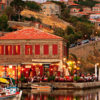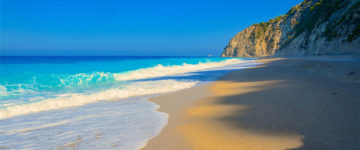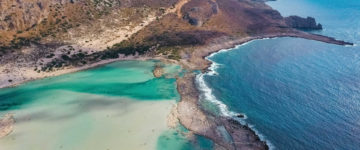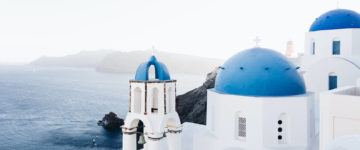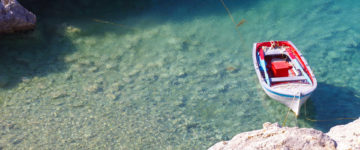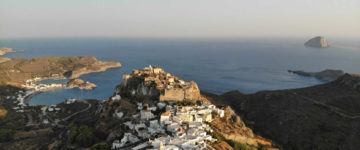
Lying seductively just off the Turkish coast, semitropical Samos is one of the northeastern Aegean Islands’ best-known destinations. Yet beyond the low-key resorts and the lively capital, Vathy, there are numerous off-the-beaten-track beaches and quiet spots in the cool, forested inland mountains, where traditional life continues.
Samos is very famous for its sweet local wine and a very significant island in Greece by historically point of view. It was the legendary birthplace of Hera, and the sprawling ruins of her ancient sanctuary, the Ireon, are impressive. Both the great mathematician Pythagoras and the hedonistic father of atomic theory, the 4th century bc philosopher Epicurus, were born here. Samos’ scientific genius is also affirmed by the astonishing Evpalinos Tunnel 524 bc, a spectacular feat of ancient engineering that stretches for 1034 meters deep underground.
As far the capital of Samos , Vathy is concerned , has two pebble beaches, the best being Gagos Beach, about 500m north from the old quay. The historic quarter of Ano Vathy is remarkable, filled with steep, narrow streets and red-tiled 19th-century hillside houses brims with atmosphere. The town center boasts two engaging museums and a striking century-old church.
Samos is located in the north Aegean and belongs to the Northeast Aegean Islands group which contains the islands Chios and Lesvos also. Those three islands is far away from the Greek mainland, dispersed along the coast of Turkey. The geographic coordinates of Samos are 38°24’00.0″N 26°01’00.0″E in Aegean Sea.

